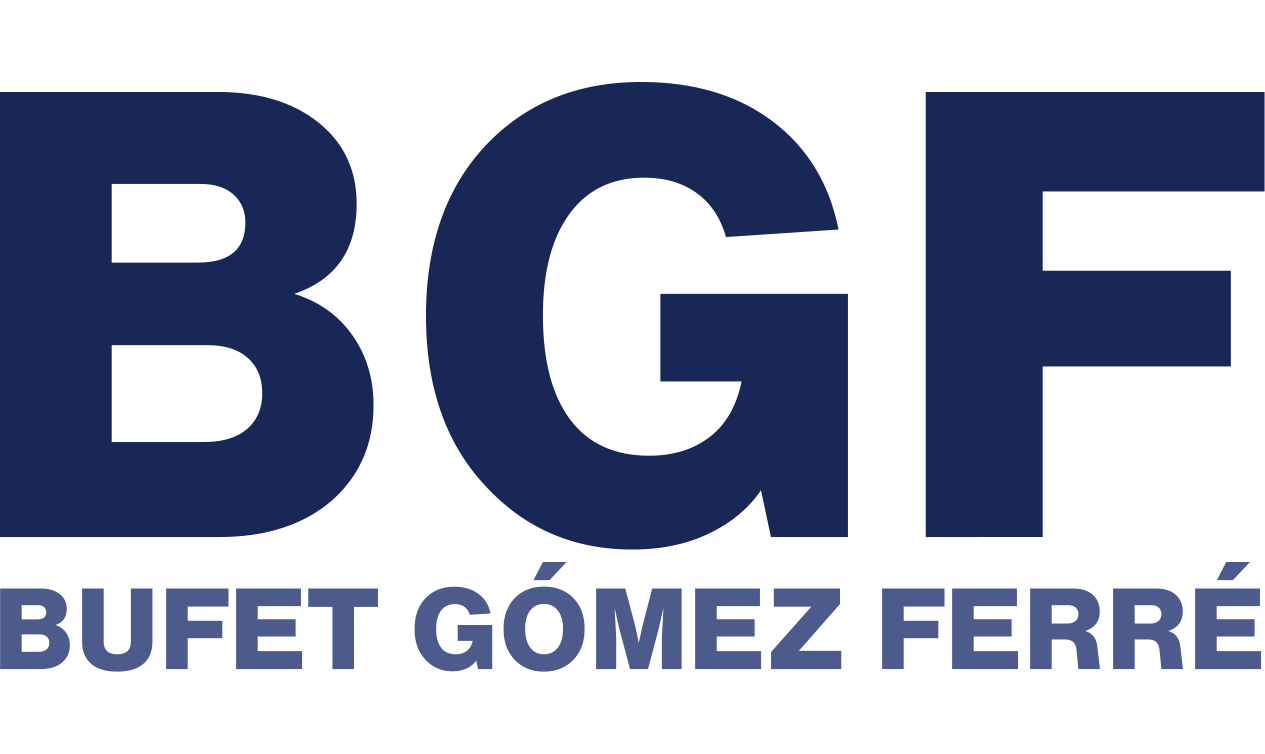
When financial difficulties make it impossible to keep paying a mortgage, many people wonder if there is a legal solution to cancel the debt without carrying it for life. In this context, payment in kind emerges as an alternative to consider. But is it really viable? What conditions must be met?
At BUFET GÓMEZ FERRÉ, lawyers specialized in payment in kind, we answer all your questions about this mechanism, its advantages and disadvantages, and how to apply for it if you are facing a critical situation.
What is payment in kind?
Payment in kind is a legal mechanism by which a debtor hands over an asset (usually their home) to the creditor (the bank) in exchange for the full cancellation of the mortgage debt. In other words, instead of continuing to pay unaffordable installments or facing foreclosure, you can hand over your mortgaged home and thereby extinguish the debt.
It is not an automatic or mandatory process for the financial institution: there must be an agreement between both parties. For this reason, many people turn to banking law specialists to negotiate under fair conditions. Payment in kind of a home is particularly useful in cases where the property’s value has dropped, family income has drastically decreased, or the household is going through a prolonged unemployment situation. For these reasons, it has become a viable option for families unable to cope with their mortgage, avoiding foreclosure and repossession procedures.
Requirements to apply for payment in kind
Although there is no single law that comprehensively regulates payment in kind, there are a series of legal requirements that banks usually consider before accepting it, in line with the Civil Code and the Mortgage Law.
The main requirements for payment in kind are:
- Not having sufficient income to meet mortgage payments.
- No member of the household has income or assets in their name.
- The property must be the debtor’s main residence and sole property.
- The property’s value must not exceed certain limits (usually between €200,000 and €250,000, depending on the region).
- There are no guarantors, or if there are, they must also be insolvent.
Required documentation to apply for payment in kind
To initiate a payment in kind procedure with a financial institution, it is essential to provide a series of documents that prove both your financial situation and the conditions of the mortgage loan. This documentation helps demonstrate that you meet the legal requirements and allows you to negotiate with the bank successfully. The most common documents to be submitted are:
In any case, seeking advice from a lawyer specialized in payment in kind is essential. They can guide you on which documentation is necessary in your specific case, help you properly prepare the file, and defend your interests during negotiations with the bank to achieve a viable solution.
Differences between payment in kind and foreclosure
One of the most common questions is the difference between payment in kind and foreclosure. Although both end with the loss of the property, their consequences are very different:
In payment in kind, the procedure is based on an out-of-court negotiation between the bank and the debtor. Both parties must voluntarily reach an agreement under which the property is handed over to the bank and, in return, the mortgage debt is completely cancelled. This agreement allows the debtor to start over, without carrying debts or facing further seizures of other assets or income.
In contrast, foreclosure is a judicial process, initiated unilaterally by the bank when the debtor stops paying. This procedure is usually longer, more costly, and more traumatic, and it does not guarantee the total cancellation of the debt. If the amount obtained at the property auction is less than the outstanding debt, the debtor will still be required to pay the difference. Moreover, it may involve the seizure of other assets or even wages.
As you can see, payment in kind offers a more beneficial and less traumatic solution for the debtor, since it allows for the full cancellation of the debt and prevents future seizures. There is also the possibility of negotiating a social rent with the bank, enabling the affected person to continue living in the same property. However, legal advice is crucial to assess whether this alternative is feasible, since not all cases meet the requirements to access it.
If you decide to seek legal assistance from BUFET GÓMEZ FERRÉ, our lawyers specialized in payment in kind will assess whether you meet the requirements and accompany you throughout the negotiation process with the financial institution.
Advantages and disadvantages of payment in kind
Payment in kind: advantages and disadvantages you should consider before applying for it:
Advantages of payment in kind:
- Full cancellation of the mortgage debt: by handing over the property, the financial institution considers the debt settled, freeing you from further payments.
- Avoids judicial seizure and foreclosure proceedings: it stops the foreclosure process and its legal consequences.
- Possibility to remain in the property: in some cases, a social rent can be negotiated, allowing you to continue living in the home with an affordable rent.
- Lower emotional and financial impact: it is a less traumatic alternative than losing the home at auction.
- Protection of personal assets: it prevents other assets or future income from being seized to cover the debt.
Disadvantages of payment in kind:
- Permanent loss of the property: it is an irreversible measure; once accepted, ownership of the home is lost.
- Not always accepted by the bank: financial institutions are not obliged to grant it, especially if there are other guarantees or sources of income.
- Negative impact on credit history: it may hinder the ability to obtain new loans or credit in the future.
- Strict legal conditions: the law imposes strict requirements (vulnerable family, primary residence, limited income, etc.) to access this mechanism.
- Risk for guarantors: if their release is not negotiated, guarantors may still be held liable for the remaining debt.
Frequently Asked Questions
You must submit a formal request to the bank, along with all documentation supporting your financial, family, and asset situation.
This request must be well-structured and reasoned, as the bank will assess various factors before accepting it. For this reason, it is advisable to do so through a lawyer specialized in payment in kind who will prepare the file and negotiate directly with the bank. Their experience can make a decisive difference in obtaining a favorable response, avoiding mistakes or rejections on formal grounds.
There is no public or closed list of banks that automatically accept payment in kind. It depends on your financial situation and the risk profile of the operation. Institutions such as CaixaBank, Santander, Bankinter, or BBVA, among others, may consider it in very specific circumstances, especially if a high level of vulnerability is demonstrated or all other options have been exhausted. Each case is assessed individually, so the key is to present a well-documented file that meets current legal and banking requirements.
If the bank refuses to accept payment in kind, not all is lost. Other solutions can still be explored, such as requesting a mortgage debt restructuring, proposing an agreed sale of the property with a discount, or even initiating legal action if the refusal is deemed unjustified. Furthermore, depending on the debtor’s profile, the Second Chance Law could also be considered.
In any case, it is important not to give up and to seek professional advice to explore all possible legal avenues and protect your rights as a consumer.
Free lawyer consultation – Lawyers specialized in payment in kind
Get a free consultation with lawyers specialized in payment in kind in Barcelona.
At BUFET GÓMEZ FERRÉ, we have an in-house team of lawyers, highly experienced in various areas of Banking Law. Our expertise includes payment in kind, negotiations with financial institutions, and cancellation of mortgage debts.
We offer a first free consultation to analyze your situation, present your real options, and guide you in decision-making with clear and professional information, highlighting our work method as results-based lawyers.
Take back control of your family finances: contact our lawyers specialized in Banking Law today.




